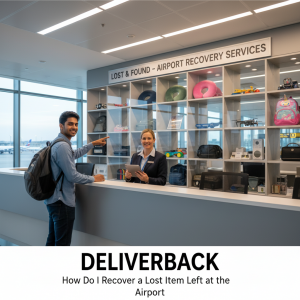For countless travelers, the friendly faces of airline crew members are their first point of contact when embarking on a journey through the clouds. These dedicated professionals do far more than serve drinks and demonstrate safety procedures – they are highly trained individuals responsible for passenger safety, comfort, and overall flight experience.
The Role of Modern Airline Crew
Today’s airline crew comprises various professionals working in perfect synchronization. From flight attendants to pilots, each crew member plays a vital role in ensuring safe and comfortable air travel. The airline crew’s primary responsibility is maintaining safety standards while providing exceptional customer service at 35,000 feet.
Flight attendants, a crucial component of the airline crew, undergo rigorous training before earning their wings. These professionals master emergency procedures, first aid, security protocols, and customer service skills. The airline crew must stay current with regulations and procedures through regular training sessions and assessments.
Behind the Scenes: Daily Responsibilities
The life of airline crew members starts long before passengers board the aircraft. They typically arrive at the airport several hours before departure for pre-flight briefings. During these meetings, the airline crew discusses weather conditions, special passenger requirements, and potential challenges they might face during the flight.
Once onboard, the airline crew conducts thorough security checks and ensures all emergency equipment is in perfect working order. They verify that all necessary supplies are stocked and properly stored. This attention to detail is what sets professional airline crew members apart and ensures smooth operations during the flight.
Managing Lost Items: A Critical Service
One often-overlooked responsibility of the airline crew is managing lost items. When passengers leave belongings behind, the airline crew must follow strict protocols to document and secure these items. Many airlines now use innovative solutions like Deliverback, a digital platform that helps airline crew members efficiently track and return lost items to their rightful owners.
The lost item management process requires airline crew members to:
- Document found items with detailed descriptions
- Record where and when items were discovered
- Secure valuable items in designated storage areas
- Input information into tracking systems like Deliverback
- Coordinate with ground staff for item return
Compensation and Benefits
The financial aspect of an airline crew career varies significantly based on experience, airline, and position. Entry-level flight attendants typically earn between $25,000 to $35,000 annually, while experienced airline crew members can earn upwards of $80,000 per year. Senior positions within the airline crew, such as pursers or chief flight attendants, often command higher salaries.
Beyond basic salary, airline crew members enjoy numerous benefits, including:
- Free or heavily discounted travel
- Health insurance and retirement plans
- Hotel accommodations during layovers
- Per diem allowances for meals and incidentals
- Flexible schedule options
Life Between Flights for a Flight crew
The lifestyle of airline crew members is unique and requires careful balance. While the job offers opportunities to visit exotic locations, it also demands adaptation to irregular schedules and time zones. Experienced airline crew members develop strategies to maintain healthy relationships and personal lives despite their unconventional working hours.
Many airline crew members use their layovers to explore new cities, maintain fitness routines, or pursue educational opportunities. Some airline crew professionals even run successful side businesses or engage in creative pursuits during their off-duty time.
In some cases they might even use a luggage retrieval service to easily get back their luggage or a lost item
Training and Career Development
Becoming part of an aviation team requires dedication and continuous learning. Initial training programs typically last 6-8 weeks and cover various aspects:
- Safety and emergency procedures
- Customer service excellence
- Medical emergency response
- Cultural sensitivity training
- Aircraft-specific operations
Throughout their careers, airline crew members must maintain certifications and undergo regular training updates. This commitment to professional development ensures they stay current with industry standards and best practices.
Challenges and Rewards
While the life of airline crew members can be demanding, it offers unique rewards. The ability to interact with people from different cultures, travel to diverse destinations, and make a difference in passengers’ travel experiences makes this career particularly fulfilling for many.
Common challenges faced by airline crew include:
- Irregular sleep patterns
- Extended periods away from home
- Physical demands of the job
- Managing difficult passenger situations
- Adapting to weather-related schedule changes
Future of Airline Personnel Roles
The aviation industry continues to evolve, and with it, the role of airline crew members. New technologies and changing passenger expectations are reshaping how crew members perform their duties. Modern airline crew must be tech-savvy, adaptable, and ready to embrace innovations that enhance the travel experience.
Emerging trends affecting airline crew operations include:
- Digital service delivery systems
- Enhanced safety protocols
- Sustainable aviation practices
- Personalized passenger services
- Advanced communication tools
Work-Life Balance Strategies
Successful airline crew members develop effective strategies for maintaining work-life balance. Many create specific routines for their days off, ensuring quality time with family and friends. Some airline crew members choose to work concentrated schedules, allowing for extended periods at home between flight assignments.
Popular work-life balance approaches include:
- Maintaining consistent exercise routines
- Planning social activities during off-duty periods
- Using technology to stay connected with loved ones
- Creating structured sleep schedules
- Developing hobbies that can be pursued anywhere
Impact on Personal Growth
Working as part of an airline Flight attendants often leads to significant personal development. Crew members typically develop strong problem-solving skills, cultural awareness, and emotional intelligence. The unique challenges and experiences of the job contribute to professional growth and life skills that extend beyond their aviation careers.
Conclusion
The life of airline cabin crew members is dynamic, challenging, and rewarding. From ensuring passenger safety to managing lost items through systems like Deliverback, these professionals handle numerous responsibilities with grace and efficiency. While the career demands flexibility and dedication, it offers unique opportunities for personal growth, travel, and professional development.
For those considering joining the ranks of airline crew, the path requires commitment and resilience. However, the rewards – both personal and professional – make it an attractive career choice for individuals seeking a dynamic and meaningful profession in the aviation industry. The next time you board a flight, remember that the airline crew members serving you are highly trained professionals dedicated to ensuring your journey is safe, comfortable, and memorable.


